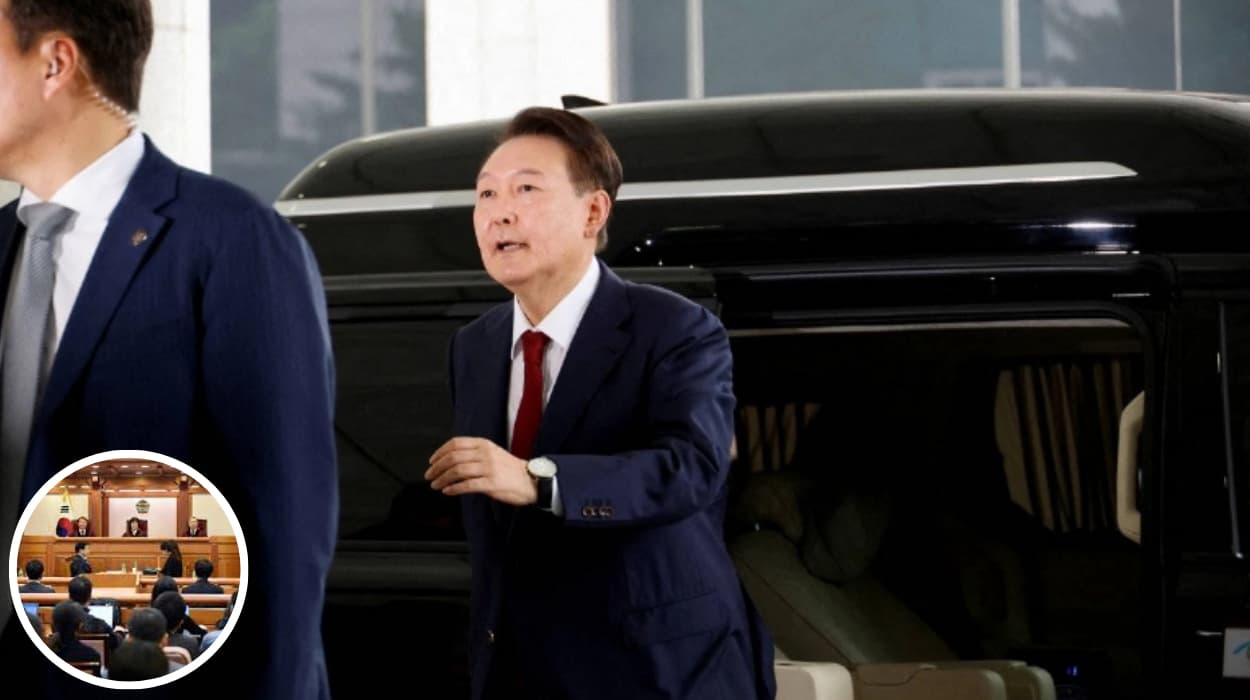Key Points
- South Korea's judiciary has scheduled a hearing for July 9, 2025, to consider a detention warrant for former President Yoon.
- The move follows a series of high-profile investigations into alleged misconduct during Yoon's administration.
- The hearing will determine whether Yoon will be detained pending further legal proceedings.
- This case marks a significant moment in South Korea’s ongoing efforts to address political accountability and corruption.
- Legal experts and political analysts are closely watching the proceedings for potential impacts on the nation’s political landscape.
- No official statement from Yoon or his legal team has been released regarding the upcoming hearing.
- Public reaction in South Korea is mixed, reflecting deep political divisions.
- The court’s decision could set a precedent for handling cases involving former heads of state.
South Korea’s judiciary has announced that a critical hearing to determine whether former President Yoon will be detained pending further legal action will take place on July 9, 2025. The decision comes amid ongoing investigations into alleged misconduct during Yoon’s tenure, signaling a pivotal moment in the country’s approach to political accountability.
What Led to the Detention Warrant Request for Former President Yoon?
Background of the Legal Proceedings
As reported by multiple South Korea media outlets, the request for a detention warrant against former President Yoon follows months of investigation into allegations of abuse of power and corruption during his administration. The specific charges have not been made public, but sources familiar with the case indicate that prosecutors are examining a range of actions taken by Yoon and his associates while in office.
Legal analysts note that the decision to seek a detention warrant for a former president is rare and underscores the seriousness of the allegations. South Korea has a history of holding former leaders accountable, but each case is closely scrutinized for its legal and political implications.
Timeline of Events Leading Up to the Hearing
- Early 2025: Allegations of misconduct during Yoon’s presidency begin to surface, prompting preliminary inquiries by law enforcement.
- Spring 2025: Formal investigations are launched, with prosecutors gathering evidence and interviewing key witnesses.
- Late June 2025: Prosecutors file a request for a detention warrant, citing concerns about potential evidence tampering or flight risk.
- July 7, 2025: The court announces a hearing date for July 9, 2025, to consider the warrant.
How Has Former President Yoon Responded to the Allegations?
As of the current reporting, neither Yoon nor his legal team has issued a formal statement regarding the upcoming hearing or the allegations at the center of the investigation. Observers note that this silence is not unusual in high-profile legal cases in South Korea, where defendants often refrain from public comment until after initial court proceedings.
Political allies of Yoon have called for due process and cautioned against what they describe as a rush to judgment. Critics, however, argue that the legal system must act decisively to uphold the rule of law, regardless of the individual’s former office.
What Are the Legal and Political Implications of the Hearing?
Potential Impact on South Korean Politics
The upcoming hearing has already sparked intense debate within South Korea’s political circles. According to analysts cited by national broadcasters, the case could have far-reaching consequences for the country’s political landscape. If the court grants the detention warrant, it would mark a significant escalation in the investigation and could influence public perceptions of political accountability.
Legal experts emphasize that the court’s decision will be closely watched as a test of the judiciary’s independence and the robustness of South Korea’s legal institutions. The outcome could also set a precedent for how similar cases are handled in the future.
Public Reaction and Political Divisions
Reporting from Seoul indicates that public opinion is sharply divided. Supporters of Yoon view the investigation as politically motivated, while opponents argue that no one should be above the law. Social media platforms and news comment sections reflect a wide spectrum of views, underscoring the deep political divisions in South Korean society.
What Happens Next in the Legal Process?
The July 9 Hearing: What to Expect
During the July 9 hearing, the court will hear arguments from both prosecutors and Yoon’s defense team. Prosecutors are expected to present evidence supporting their request for detention, including any concerns about obstruction of justice or risk of flight. The defense will likely argue that Yoon poses no such risks and should be allowed to remain free pending trial.
Legal observers anticipate that the court’s decision could be announced as early as the same day, though complex cases sometimes require additional deliberation.
Possible Outcomes
- Yoon would be taken into custody immediately and held pending further investigation and possible indictment.
- Yoon would remain free but could still face trial if prosecutors proceed with formal charges.
How Does This Case Compare to Previous Investigations of Former South Korean Leaders?
South Korea has a history of prosecuting former presidents for alleged misconduct. Notably, former presidents Park Geun-hye and Lee Myung-bak were both convicted and imprisoned on corruption charges in recent years. Each case has tested the country’s commitment to legal accountability and has had significant political repercussions.
Legal scholars note that the Yoon case, while unique in its specifics, fits within a broader pattern of South Korea’s efforts to address corruption at the highest levels of government.
What Are the Broader Implications for Rule of Law in South Korea?
The decision to hold a hearing on a detention warrant for a former president is seen by many as a sign of South Korea’s evolving democracy and its commitment to the rule of law. International observers will be watching closely to see whether the proceedings are conducted transparently and in accordance with due process.
Political analysts suggest that the case could influence future administrations’ approach to governance and accountability, reinforcing the principle that all public officials are subject to the law.

